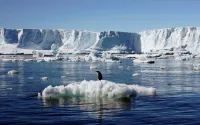24 July 2006
In an unusual but welcome intervention, the U.S. Supreme Court has decided to wade into the global warming debate. In its next term, the court will hear a lawsuit brought by California and other states against the federal government for failing to reduce carbon dioxide emissions. Courts usually defer to the discretion of administrative agencies to implement the law, but in this case such deference is outweighed by the administration's glaring dereliction of duty.
At issue is whether the U.S. Environmental Protection Agency has the authority under federal law to regulate carbon dioxide and other greenhouse gases. The EPA says it does not — and that, by extension, neither does California, which is uniquely empowered by federal law to fight air pollution. Recent legislation to push the administration toward specific action has been stymied by Republicans in Congress. But the Clean Air Act, passed in 1970, charges the government with regulating substances that "may reasonably be anticipated to endanger public health or welfare," and it specifically includes those that might affect the "weather" or "climate."The wording is pretty straightforward, but the case hinges on tricky questions of whether science has clearly proved that carbon dioxide from human activity contributes to climate change and whether that climate change endangers public welfare.Credible research has piled up in recent years — produced by noted scientific institutions and sometimes the Bush administration's own climatologists — linking climate change to rapidly accelerating Arctic ice melt, fiercer hurricanes and, most recently, Western wildfires. Many of these studies have fingered human activity as a substantial contributor to the warming trend. Even though President Bush promised six years ago to reduce greenhouse gases, his main response since has been to call for more study on climate change. The court generally, and wisely, declines to wade into and resolve scientific or bureaucratic debates. But there is national and international need for clarity on this issue. What's not clear, of course, is how the court will rule. But even a decision essentially allowing the EPA to ignore global warming could shame Congress into passing clarifying legislation. And there's always the chance that the court will acknowledge, as one administration official did a year ago, that "the surface of the Earth is warmer and that an increase in greenhouse gases caused by humans is contributing to the problem." That official, by the way, is not a climatologist. He's the president.






